5. Eclipse (1962)
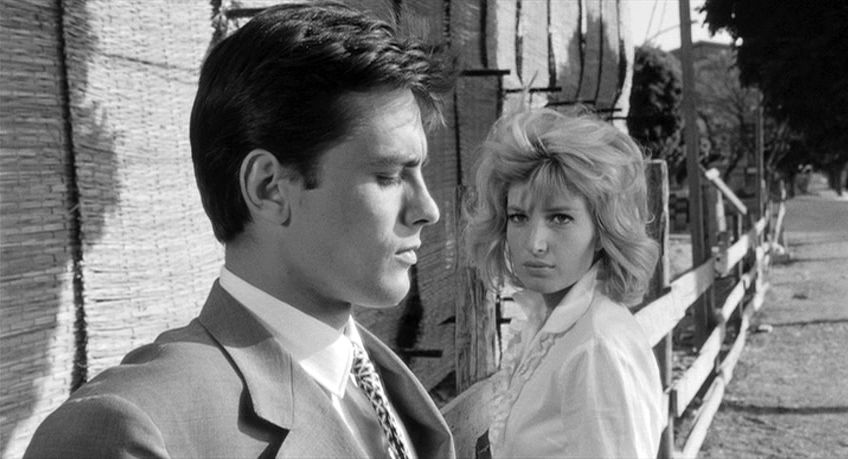
“Eclipse” is like an abstract painting in the way every line, color, and element can mean different things to different people. The last black-and-white film by Michelangelo Antonioni is a superb masterpiece, but was relatively unnoticed at the time, as Fellini, Rossellini, and Godard were catching all the attention.
The exception was Japan, where the film was an absolute success. Today the film has the classic label on it, but isn’t as quoted as others from the 60s. In fact, it is more like an artifact for true Italian cinema enthusiasts.
Highly inspirational for Scorsese, “Eclipse” was a film where, before it was cool, Antonioni already let the audiences make their own conclusions. The film was also a way to understand the lack of artistic sensibility of American cinema at the time, as the last seven minutes of the film were eliminated in American theaters because there was no dialogue.
That final sequence remains one of the most iconic in Antonioni’s filmography. Regarding Delon, we could say this was a performance of a lifetime, but in his case it was just an excellent job, because he’d done better before and after 1962.
4. Purple Noon (1960)
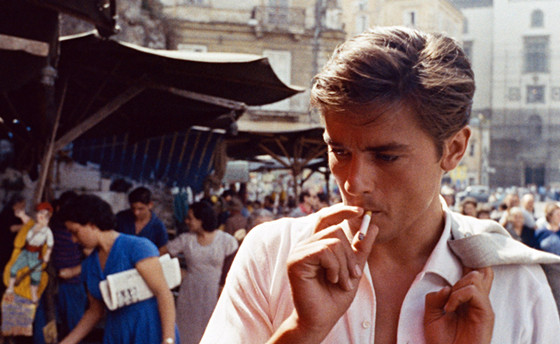
“Purple Noon” was based on the same group of stories as “The Talented Mr. Ripley” by Patricia Highsmith, but both films are incomparably different and I don’t even dare to compare Delon and Matt Damon as Tom Ripley.
Credited as one of his first performances, “Purple Noon” is like a Hitchcock film in French colors, and maybe the first flick where Delon shined on large scale. His performance was so good that even Highsmith, who was very disappointed with the finale, was astonished by the French actor.
The most noticeable nuance between this film and the novel and the remake was its approach toward morality. René Clément gives it a very indecent turn and allows the characters to be dark and amoral.
In the middle of this, we are totally captured by Delon, who leads the action with a dangerous but enthralling and seductive role. Unfortunately, this performance was overshadowed by Rocco from “Rocco and his Brothers”, filmed in the same year.
3. The Red Circle (1970)
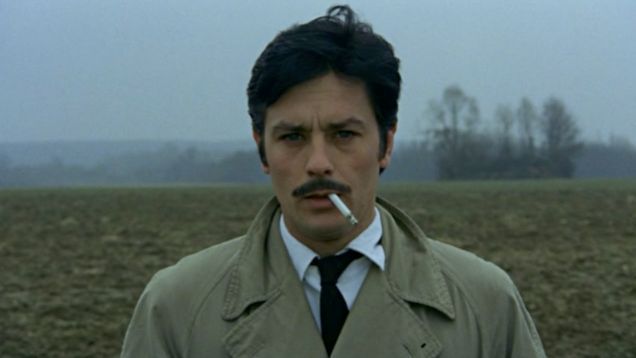
“The Red Circle” is a heist film directed by Jean-Pierre Melville, and that by itself is symptomatic about its quality. The film follows the path of Corey (Delon), a man who is released from prison, who rushes to prepare a complex robbery with a former detective and a famous runaway. Sustained by a great cast and a clever script, “The Red Circle” is a masterpiece where the awesome scenes flow discretely, one after another, in a flurry of style.
Delon was losing some of his credit and popularity in this phase and “The Red Circle” was like an elixir for him, as he was starting to be forsaken by the important names of the industry. His response was epic, also benefiting from his partners Yves Montand and Gian Maria Volontè, who were at the peak of their form. In fact, Delon was always very solid with Melville directing him, showing he was always more proficient with top-class filmmakers.
Side note: The 25 minutes heist scene with no words spoken is simply unbelievable.
2. Rocco and His Brothers (1960)
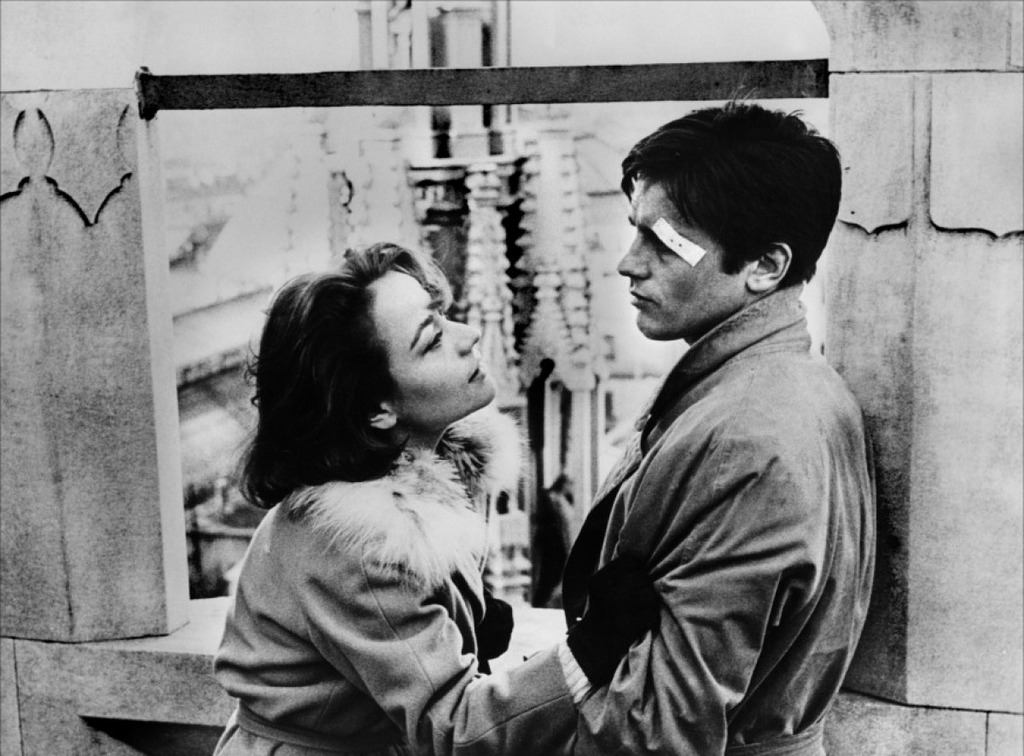
This is a remarkable achievement by Luchino Visconti and a film that stays with the viewer for a long time. The Italian director draws an incisive portrait of family – very distant from an Ozu exercise or a Spielberg movie – using a contaminated environment to emphasize Rocco, a pure and altruistic family character. Delon perfectly embodies the innocence of Rocco, using his beautiful face to lend an angelic identity to the performance, connecting physical and psychological beauty.
The success of “Rocco and his Brothers” is justified by its bipolar vision of society, ethical violence, and an inexplicable intimacy. It’s like we knew all those characters already! Superbly filmed by Giuseppe Rotunno and with an interesting Nino Rota score, this film was a big influence for Martin Scorsese and Francis Ford Coppola. The film was highly censured and had lots of scenes cut, and we can only imagine how greater the film would be if made today.
1. Le Samouraï (1967)
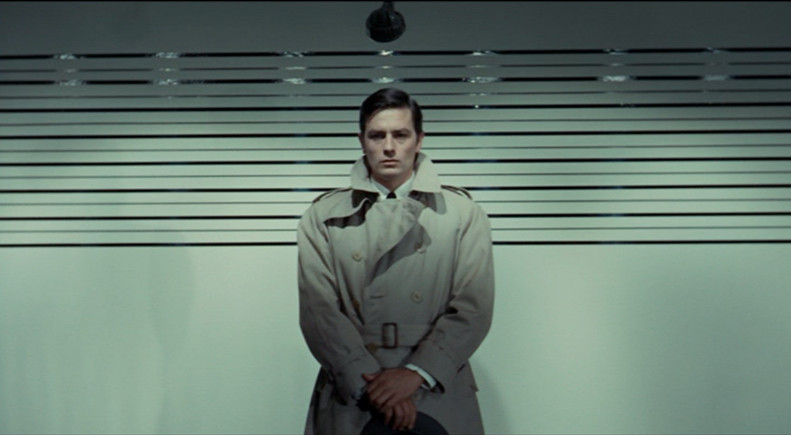
“Le Samouraï” is an antihero masterpiece with features of a classic spread throughout. The loner Jef Costello, interpreted by Delon, is very charismatic and executes every movement with a cold and calculated precision that provides a cool vibe. Though the film isn’t very dense in its dialogue, all of his moves are an enigmatic way of communication that the audience must decipher using some kind of intuitive connotation.
Melville was an intelligent filmmaker and he knew films were more about images than dialogue (lots of American directors aren’t aware of that even today), so he made a comics-peruse shaped film.
The way Delon puts on his hat is a landmark, and this was the greatest performance we’ve seen from the Frenchman. Communicating with few words is a very hard task, and Delon did it easily using his imposing figure and body language to express the character’s mannerisms. “Le Samouraï” built a huge legacy until today, being one of the most influential pieces of the best directors of the upcoming years, and one of the films that forever immortalized Delon’s career.
Author Bio: Pedro Bento is a portuguese samurai, who travels with his wakizashi sword into the infinity of his mind, always forgetting his way home. He doesn’t believe in inspirational moments, but he likes to hide in a secret place, where heavy metal is always blasting and no one can bother him, except his apathetic girlfriend Inês. Yes, he’s a loner.